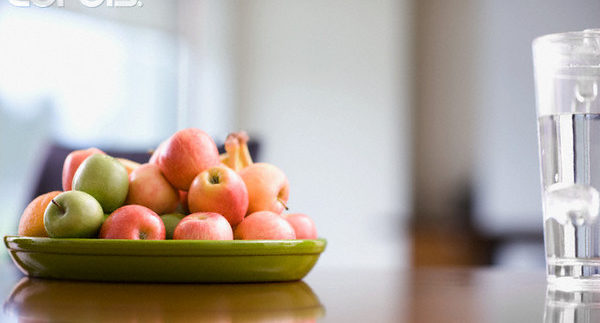The Cairo 360 Guide to Staying Healthy During Ramadan

Tanya El Kashef
Every Ramadan you hear the same complaints about gaining
weight instead of losing it, feeling fatigued and exhausted as opposed to feeling light and refreshed. It doesn’t take a rocket scientist to figure out why;
stuffing your face after a day of abstaining from
food is bad for you. So while most people know deep in their hearts what the
proper approach to this holy month is, we’re here to remind you once again.
Food
-Yes, we know all you fantasize about during the sunlit hours
is food, most likely food that is fried or dipped in sugar. What else would you
daydream about? A lettuce leaf? The truth is, your stomach may flirt with the
idea of a burger within its walls, but what it needs is entirely different.
Sohour
The meal that prepares you for a day-long fast is very
important. Many people choose to skip it, either because they can’t be bothered
to wake up once they’ve gone to bed or because of the fear that a midnight snack that doesn’t
help to shed some weight. Truth is, making sure to eat something for sohour is
important in balancing out the fat in your body.
-What to eat: Wholesome, moderate food for this meal is best. Complex
carbohydrates such as wheat, oats and beans are good because they slowly
release energy throughout the day. Fibre-rich foods such as cereals, grains and
most fruit are also a good because they are slow to digest.
Keep your sohour light and stick to salad, balady bread
(full of fibre), cereals and fruit. Yoghurt is also a good option since it’s hydrating and won’t add on unwanted weight.
-What not to eat: Stay away from heavily processed, fast burning foods that
contain refined carbs such as sweets, chocolate and other preserved foods.
While some people like to have their coffee before they sleep, try and avoid
caffeine since it’s a diuretic and stimulates water loss.
Fetar
Awaiting this meal can be painful sometimes; all you want to
do the second the prayer goes at sunset is hurl yourself at the table and
devour all that’s in sight. Take a deep breath and control yourself. Your mind
may be telling you one thing, but your body is screaming another.
-What to eat: The best way to break your fast is to eat something small.
Dates are a common suggestion because of their sugary energy boost. Another option
is a bowl of soup, which warms your stomach and gently
prepares it for the incoming food.
It’s good to wait a while before having a proper meal. Most
fasters find that their appetites shy away from food should you attack it with
too much at once. Waiting an hour, or even two, gives it a chance to wake up
and appreciate the meal.
Stick to baked foods and grilled meats for fitar. They’re
lighter and less hectic for your stomach to digest; they also help with
unwanted weight gain. While konafa and basbousa lure you in, stay strong and opt for rice pudding instead as milk-based desserts are better
for you.
-What not to eat: Anything deep-fried, high in sugar and fat, or spicy is a no
go. These foods are most harmful to your stomach since it requires a more
delicate approach during the month of fasting.
Water
Water is of utmost important regardless of Ramadan,
especially in this heat. Add to to that the fact that while fasting, you have
none for 12 hours of the day – not the ideal situation. So it’s very important
to try and compensate for those hours during the night-time.
When you fast your glucose levels drop, therefore your
energy levels do which in turn affects your metabolic rate. Water is an
important component to this balance and your need for it is dire.
Break your fast with water for rehydration but also for its
ability to prevent overindulgence. Don’t make yourself sick with too much
water, but introduce it to your fasting stomach and a good eating balance will
prevail.
Instead of downing soda after your meal, have a glass of
water. We’re not
saying you shouldn’t enjoy traditional Ramadan drinks, but opt for water
more often than a sugar-laden liquid.
Throughout the night, sip on water; go to the kitchen, have
a glass of water; take a walk, have a glass of water; your favourite mosalsal
just started, have a glass of water. Water, water, water! It’s very important.
Exercise
It isn’t encouraged to workout while you’re fasting, though
many people do, because there’s not enough energy to spare. Exercising while
fasting puts an extra strain on your body that does it more harm than it does
well.
Instead, head to the gym for that workout right after fetar.
Have a bowl of soup and some salad then go for that run, then go home and enjoy
a wholehearted meal.
Smoking
A favourite Ramadan pastime is to sit in badly ventilated
tents and puff on shisha all night. Sounds a bit like a torture chamber but Egyptians just love their shisha. While this is
outright discouraged, we also suggest that maybe it’s a chance to quit smoking
cigarettes as well. Spending half of your day without puffing on a cancer stick
might just be a kick-start to quitting entirely.
Sleep
Last but not least is getting a good night’s sleep. We know
the television is oh so tempting and we know the city doesn’t sleep till it’s
practically sunrise, but if you have a job to get up for in the morning then
make sure to get a sufficient amount of sleep. This is the only time your body
gets to rejuvenate itself for the coming day of, so let it rest.
Stay healthy Cairo!
recommended
 Restaurants
Restaurants
Cairo's Ramen Revival: 5 Must-Try Bowls Around the City
Asian Food Asian Restaurants Cafés
Cafés



